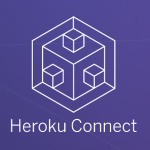Connect Microsoft Ads to Heroku Connect


About Microsoft Ads
Integrate.io is a data warehousing integration solution that moves data from Microsoft Ads to a supported data destination for unparalleled data analysis. You don't need to build complex big data pipelines or learn lots of code because Integrate.io's native ETL Microsoft Ads connector does all the hard work for you. Schedule an intro call to learn more.
About Heroku Connect
Heroku Connect is a data integration tool that uses bi-directional synchronization between Salesforce and Heroku Postgres to harmonize Postgres data your Salesforce information like contacts, accounts, and custom objects. Heroku connect includes a user-friendly, point-and-click interface so non-tech-savvy users can set up the service in minutes without coding or complicated configuration procedures.
Popular Use Cases
Bring all your Microsoft Ads data to Amazon Redshift
Load your Microsoft Ads data to Google BigQuery
ETL all your Microsoft Ads data to Snowflake
Move your Microsoft Ads data to MySQL
Bring all your Heroku Connect data to Amazon Redshift
Load your Heroku Connect data to Google BigQuery
ETL all your Heroku Connect data to Snowflake
Move your Heroku Connect data to MySQL
Microsoft Ads's End Points
Table of Contents:
- Connect your Microsoft Ads data for one single source of truth
- ETL your Microsoft Ads data into a target destination in minutes
- Integrate.io has the Microsoft Ads data integrations that you need
- How Integrate.io customers power growth with Microsoft Ads data connectors
- Get started analyzing your Microsoft Ads data in minutes
- Why choose Integrate.io for your Microsoft Ads data integration?
- Start your Microsoft Ads data integration today
- Explore our Microsoft Ads ETL resources
Connect your Microsoft Ads data for one single source of truth
- Compare Microsoft Ads product, status, and catalog data with other data sets.
- Identify patterns and trends in Microsoft Ads data for better decision-making.
- Analyze Microsoft Ads data to improve your organization's sales, marketing, customer service, and inventory management outcomes.
ETL your Microsoft Ads data into a target destination in minutes
- Integrate.io lets you ETL Microsoft Ads data to destinations such as Snowflake, Amazon Redshift, and Amazon S3.
- Extract data from Microsoft Ads and load it to a target system while accounting for and removing data inaccuracies for more accurate analytics.
- Integrate.io also performs super-fast Change Data Capture (CDC) when ETLing Microsoft Ads data, helping you improve ad campaigns and achieve your data integration objectives.
Integrate.io has the Microsoft Ads data integrations that you need
Examples of Microsoft Ads ETL destinations:
- Integrate Microsoft Ads data with Amazon Redshift
- Transfer data from Microsoft Ads to Amazon S3
- Load Microsoft Ads data to Snowflake
Moving other data to a target destination:
- Connect Microsoft Ads data with Mailchimp in a target system and combine SEM with email marketing and conversion tracking.
- Merge Microsoft Ads data with Salesforce CRM data and use customer relationship information to influence search campaigns.
- Integrate Microsoft Ads data with Shopify data and improve website and landing pages.
View all Integrate.io connectors.
Integrate.io is the data platform built for that facilitates a single source of truth for data-driven companies like yours. Connect Microsoft Ads data with multiple other data sources in a target system and generate unparalleled insights. Speak to our team to learn why the world’s most successful brands use this platform.
How Integrate.io customers power growth with Microsoft Ads data connectors
- Monitor requests to upload product offers to Microsoft Ads catalogs and learn whether Microsoft accepts or rejects these offers. You can also view how many offers Microsoft accepts or rejects, helping you improve your acceptance rate.
- Track Microsoft Ads data for specific products in your store and create more targeted advertising campaigns. You can also segment Microsoft Ads data by age group, product type, product condition, and other factors.
- Access Microsoft Ads product catalog data such as catalog IDs and track performance.
- View Microsoft Ads data on powerful dashboards and identify patterns and trends in that data.
Get started analyzing your Microsoft Ads data in minutes
Why choose Integrate.io for your Microsoft Ads data integration?
No-code/low-code ETL data connectors mean you don't need to assemble an expensive data engineering team to move Microsoft Ads data to a new location. You get enhanced functionality, automation, authentication, and real-time data integration in one platform.
Deep Capability
Integrate.io is the data transferring solution for companies like yours that executes ELT, ETL, and ETLT.
Improve Data Compliance
Integrate.io's data connectors help you adhere to data governance legislation like GDPR, CCPA, and HIPAA. Avoid expensive government penalties for non-compliance when moving Microsoft Ads data.
Superior Customer Service
Contact a member of the Integrate.io team by phone, email, or live chat and access FAQs, docs, and tutorials online.
Start your Microsoft Ads data integration today
14-day ETL trial. No credit card is required.
Explore our Microsoft Ads ETL resources
Heroku Connect's End Points
Heroku Connect Synchronization of Apps Across Heroku and Salesforce
Heroku Connect External Objects
Heroku Connect Data Security Compliance
Heroku Connect Easy Application Development and Scaling
Integrate Microsoft Ads With Heroku Connect Today
The no-code pipeline platform for
your entire data journey
TRY IT FREE FOR 14-DAYS

Integrates With
Get Started On Your
Data Integration Today
Powers your company decision making
and operational systems with our one-stop
ETL and data integration platforms
TRY IT FREE FOR 14-DAYS










